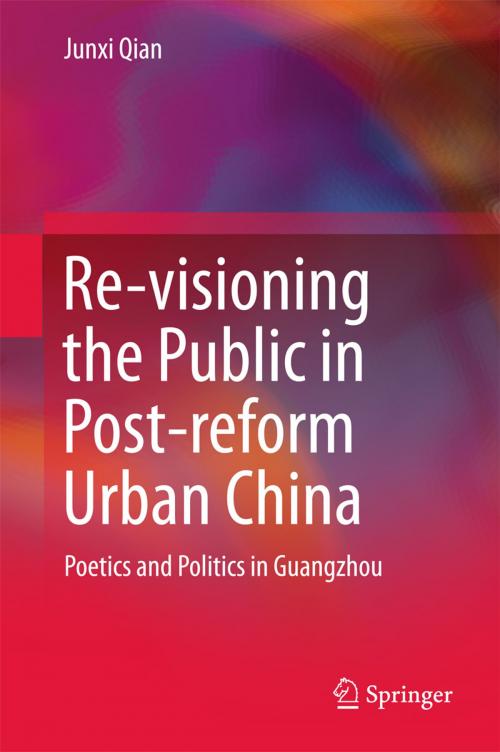Re-visioning the Public in Post-reform Urban China
Poetics and Politics in Guangzhou
Nonfiction, Social & Cultural Studies, Social Science, Human Geography, Sociology, Science & Nature, Science| Author: | Junxi Qian | ISBN: | 9789811059902 |
| Publisher: | Springer Singapore | Publication: | August 2, 2017 |
| Imprint: | Springer | Language: | English |
| Author: | Junxi Qian |
| ISBN: | 9789811059902 |
| Publisher: | Springer Singapore |
| Publication: | August 2, 2017 |
| Imprint: | Springer |
| Language: | English |
This book offers a theoretical intervention into the normative ideals of public space that are deeply rooted in Western urbanism. It disrupts the binaries of presence/absence, inclusion/exclusion by presenting a series of case studies that vividly convey the complexity and vicissitude of grassroots spatial practices. It engages powerfully with the question of what constitutes the “urban public” in our everyday cities. Moreover, it provides a fresh perspective on the proliferating scholarship on Chinese urbanism in the reform era by seriously considering the ways in which ordinary urban inhabitants respond to and negotiate the impacts of rapid social change and the reshuffling of the systems of values and ideologies. The urban public, therefore, is analyzed as an important field in which identities and cultural differences are formed and performed. This book is a worthwhile read for anyone interested in theories of urban public space in general or urban transformation of post-reform China in particular.
This book offers a theoretical intervention into the normative ideals of public space that are deeply rooted in Western urbanism. It disrupts the binaries of presence/absence, inclusion/exclusion by presenting a series of case studies that vividly convey the complexity and vicissitude of grassroots spatial practices. It engages powerfully with the question of what constitutes the “urban public” in our everyday cities. Moreover, it provides a fresh perspective on the proliferating scholarship on Chinese urbanism in the reform era by seriously considering the ways in which ordinary urban inhabitants respond to and negotiate the impacts of rapid social change and the reshuffling of the systems of values and ideologies. The urban public, therefore, is analyzed as an important field in which identities and cultural differences are formed and performed. This book is a worthwhile read for anyone interested in theories of urban public space in general or urban transformation of post-reform China in particular.















